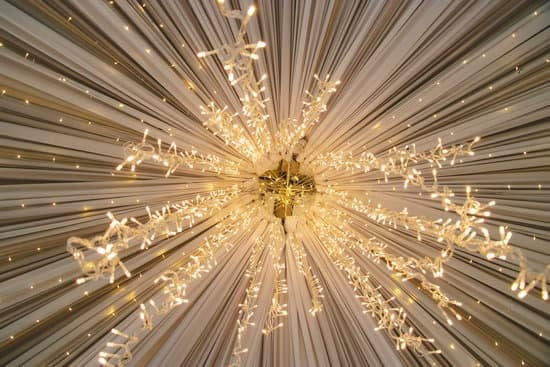What does officiate a wedding mean? When a person is designated to lead and conduct the marriage ceremony, they are referred to as the wedding officiant. This article aims to explore the various aspects of officiating a wedding, including the legal requirements, different types of officiants, and the responsibilities involved in conducting a wedding ceremony.
A wedding officiant plays a crucial role in overseeing and facilitating the exchange of marriage vows between couples. They are responsible for ensuring that the ceremony runs smoothly and according to the couple’s wishes, while also adhering to legal requirements. Understanding the role of a wedding officiant is essential for both engaged couples and individuals interested in becoming ordained to officiate weddings.
In this article, we will delve into the legalities of officiating a wedding, including the necessary requirements and responsibilities involved. We will also discuss the various types of wedding officiants, such as religious and civil officiants, as well as how one can become ordained to perform weddings.
Additionally, we will explore the process of planning and conducting a wedding ceremony, along with symbolic gestures and traditions commonly incorporated into officiation. Lastly, we will provide tips for choosing the right wedding officiant to ensure that your special day is expertly conducted.
The Legalities of Officiating a Wedding
When it comes to officiating a wedding, there are important legal requirements and responsibilities that must be observed. One of the primary responsibilities of a wedding officiant is to ensure that the marriage is legally binding.
This involves understanding the marriage laws in the specific state or country where the wedding will take place. Each location has its own set of rules and regulations regarding who can officiate a wedding, as well as what documentation is required to make the marriage official.
In the United States, for example, each state has its own laws governing who can perform a wedding ceremony. While some states allow ordained ministers, judges, or justices of the peace to conduct weddings, others have more specific requirements. It’s crucial for anyone looking to officiate a wedding to research and understand the legalities in their jurisdiction. This may involve obtaining specific credentials or registering with the appropriate government office.
In addition to ensuring that all legal requirements are met, a wedding officiant also holds the responsibility of completing and filing the marriage license after the ceremony. This involves obtaining signatures from the couple, witnesses, and themselves before submitting the document to the proper authorities. Failure to fulfill these legal responsibilities could result in the marriage not being recognized by law.
So, when asking “what does officiate a wedding mean? “, it’s essential to consider these legal aspects as an integral part of this role.
| Role | Responsibility |
|---|---|
| Ensure legality | Ensuring that all necessary legal requirements are fulfilled |
| Filing documents | Completing and filing the marriage license after the ceremony |
Types of Wedding Officiants
Wedding officiants play a crucial role in leading and overseeing the wedding ceremony. There are two main types of wedding officiants: religious and civil. Each type brings its own distinct qualities and requirements to the table.
Religious Wedding Officiants
Religious wedding officiants are individuals who have been ordained or recognized by a specific religious organization to lead wedding ceremonies within that faith. These officiants often hold a significant role within their religious community and are well-versed in the customs, traditions, and rituals of their faith. Couples who are looking to incorporate religious elements into their wedding ceremony may choose to work with a religious officiant to honor their beliefs and traditions.
Civil Wedding Officiants
Civil wedding officiants, on the other hand, are typically authorized by the state or local government to legally marry couples without any religious affiliation. These officiants may include judges, justices of the peace, or other individuals who have obtained credentials to perform legal marriage ceremonies. Civil wedding officiants focus on ensuring that the marriage complies with all legal requirements, and they are often sought after by couples who prefer a secular or non-religious ceremony.
As couples explore their options for wedding officiants, they will need to carefully consider whether they want a religious or civil ceremony, as this decision will impact both the tone and content of their wedding ceremony. Ultimately, choosing the right type of wedding officiant is an important step in creating a meaningful and personalized ceremony that reflects the couple’s beliefs and values.
How to Become an Ordained Wedding Officiant
Becoming an ordained wedding officiant is a meaningful and rewarding endeavor that allows individuals to play a crucial role in the union of two people in love. Whether it is for a religious or civil ceremony, being an officiant requires fulfilling certain legal and ethical responsibilities. So, what does officiate a wedding mean? It means being legally authorized to conduct and solemnize marriage ceremonies, ensuring that the union is valid and recognized by the law.
To become an ordained wedding officiant, one can take different paths depending on their specific requirements and beliefs. For many religious wedding officiants, obtaining ordination may involve completing religious studies, training programs, or obtaining approval from their respective religious institutions. On the other hand, civil wedding officiants may need to meet specific legal requirements set by local or state laws to obtain authorization to solemnize marriages.
One of the most common ways to become an ordained wedding officiant is through online ordination programs offered by various religious organizations. These programs typically involve a simple registration process where individuals can become legally authorized to perform marriage ceremonies after completing the necessary steps. It’s important for aspiring officiants to research and understand the legal regulations and requirements in their area before pursuing ordination.
The Process of Officiating a Wedding
Ceremony Planning
The first step in officiating a wedding is working with the couple to plan the ceremony. This includes discussing the format of the ceremony, choosing readings and vows, and incorporating any cultural or religious traditions that are important to the couple. The officiant may also offer guidance on creating a cohesive ceremony that flows smoothly from beginning to end.
Rehearsal
Once the ceremony has been planned, the officiant should conduct a rehearsal with the couple and any members of the wedding party who will have roles in the ceremony. This ensures that everyone knows their part and understands the order of events, helping to prevent any hiccups on the big day.
The Big Day
On the day of the wedding, the officiant arrives early to ensure everything is set up correctly for the ceremony. They may also spend time with each member of the couple separately, providing support and reassurance before they make their entrance. During the ceremony itself, it is important for the officiant to lead with confidence and authority, while also conveying warmth and empathy as they guide the couple through their vows and exchange of rings.
By understanding what does officiate a wedding mean and following this process, an officiant can help create a memorable and seamless experience for couples on their special day.
Symbolic Gestures and Traditions in Wedding Officiation
When it comes to officiating a wedding, there are many symbolic gestures and traditions that can be incorporated into the ceremony to make it meaningful and special for the couple. These elements can add a personal touch to the ceremony and create lasting memories for everyone involved. Here are some popular symbolic gestures and traditions often seen in wedding officiation:
1. Unity Ceremony: One of the most common symbolic gestures in wedding officiation is the unity ceremony. This can take many forms, such as a sand ceremony, candle lighting, or even a tree planting, but the idea is to symbolize the joining together of the couple and their families.
2. Exchange of Vows and Rings: The exchange of vows and rings is a timeless tradition in wedding ceremonies. It symbolizes the commitment and love between the couple, and is often a highlight of the ceremony.
3. Handfasting: This ancient Celtic ritual involves binding the hands of the couple together with ribbons or cords, symbolizing their union and commitment to each other.
In addition to these traditional symbolic gestures, couples may choose to incorporate customs from their cultural or religious backgrounds into their wedding ceremony. It’s important for the wedding officiant to work closely with the couple to understand their preferences and values in order to create a memorable and meaningful ceremony that reflects who they are as individuals and as a couple.
Honoring Personal Beliefs and Values in Wedding Ceremonies
One of the most meaningful aspects of a wedding ceremony is the opportunity to incorporate personal beliefs and values into the proceedings. Whether it’s through religious rituals, cultural traditions, or unique symbolic gestures, many couples strive to make their wedding ceremony a true reflection of who they are as individuals and as a couple.
For some couples, honoring personal beliefs and values may involve incorporating specific religious customs or traditions into the ceremony. This could include rituals such as breaking the glass in a Jewish wedding, or reciting traditional vows that hold deep spiritual significance. Other couples may choose to incorporate cultural elements from their heritage, such as performing a tea ceremony in a Chinese wedding or including traditional music and attire from their cultural background.
In addition to religious and cultural elements, many couples also seek to honor their personal values through unique symbolic gestures during the wedding ceremony. This might involve planting a tree together to symbolize growth and resilience, creating a unity painting, or performing a ring warming ceremony where each guest blesses the wedding rings with love and well wishes before they are exchanged.
These symbolic gestures can add depth and meaning to the wedding ceremony, allowing the couple to express their values in creative and personal ways.
| Honoring Personal Beliefs | Values in Wedding Ceremonies |
|---|---|
| Incorporating religious customs or traditions | Making the ceremony reflect who they are as individuals |
| Adding cultural elements from their heritage | Performing unique symbolic gestures |
| Expressing personal values in creative ways | Add depth and meaning to the wedding ceremony |
Tips for Choosing the Right Wedding Officiant
When it comes to choosing the right wedding officiant, there are several important factors to consider. Here are some tips to help you make the best decision for your special day:
- Consider Your Personal Beliefs and Values: Before choosing a wedding officiant, take some time to think about your own personal beliefs and values. Are you looking for a religious or civil ceremony? Do you want to incorporate certain traditions or symbolic gestures into your ceremony? Understanding your own preferences will help guide you in finding an officiant who aligns with your vision for the wedding.
- Ask for Referrals or Recommendations: One of the best ways to find a trustworthy and capable wedding officiant is by asking for referrals from friends, family members, or colleagues who have recently been married. They can provide valuable insight into their own experiences with different officiants and may be able to recommend someone they had a great experience with.
- Meet with Potential Officiants: Once you have a few potential officiants in mind, schedule meetings with them to get to know them better. This will give you the opportunity to ask about their experience, approach to weddings, and any specific ideas they may have for your ceremony.
It’s also important to gauge how comfortable you feel with the officiant – after all, they will be playing a crucial role in one of the most important days of your life.
Choosing the right wedding officiant is an essential part of ensuring that your ceremony accurately reflects your relationship and beliefs. By carefully considering your options and taking the time to find an officiant who resonates with you, you can create a meaningful and memorable wedding ceremony that sets the tone for the rest of your marriage.
Conclusion
In conclusion, the role of a wedding officiant is crucial in ensuring that a couple’s special day is as meaningful and memorable as possible. The impact of a well-officiated wedding ceremony goes beyond just legally binding two individuals together.
A skilled officiant has the ability to create a ceremony that reflects the unique love story of the couple, incorporates their values and beliefs, and honors their cultural traditions. This can set the tone for the entire celebration and leave a lasting impression on not only the couple but also their loved ones.
When it comes to choosing a wedding officiant, it’s important for couples to consider various factors such as their personal connection with the officiant, their expertise in creating meaningful ceremonies, and their willingness to tailor the ceremony to suit the couple’s preferences. Whether religious or civil, an officiant should be able to guide couples through legal requirements and ensure that all necessary paperwork is filed correctly.
Ultimately, what does officiate a wedding mean? It means taking on the responsibility of uniting two people in love and guiding them through one of the most important moments in their lives. A well-officiated wedding ceremony has the power to bring joy and warmth to everyone involved, leaving a lasting impression for years to come. Therefore, choosing the right officiant is essential in ensuring that this cherished moment is everything that the couple dreams of.

I have been involved in marriages for over 20 years helping couples and singles understand more about them.





